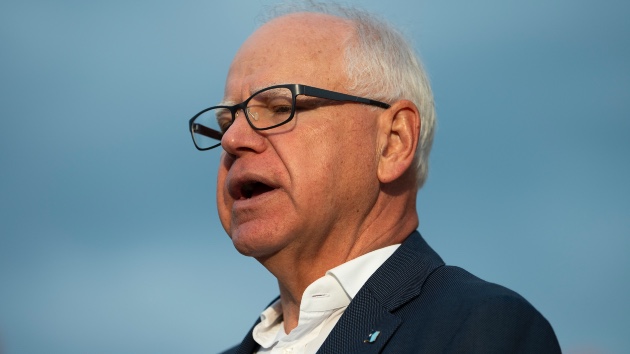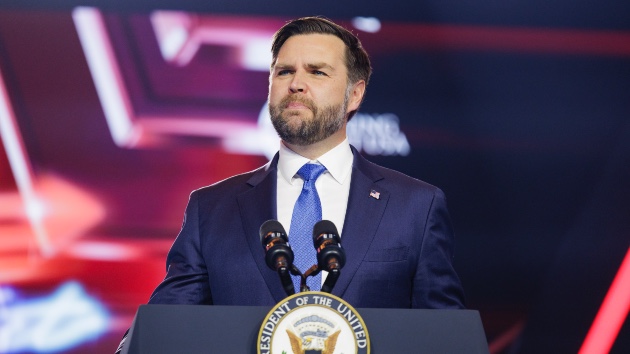Biden administration announces $5 billion commitment for research and development of computer chips
Written by ABC AUDIO on February 10, 2024

(WASHINGTON) — The Biden administration announced Friday that it expects to commit $5 billion in a public-private consortium for research and development of computer chips.
The White House said this would advance President Joe Biden’s goals of driving research and development in the United States, which include cutting down on the time and cost of commercializing new technologies.
The development comes as Historically Black Colleges and Universities (HBCUs) are gearing up for the global chips competition through a new partnership that would tap into what they say is one of America’s greatest strengths: diversity
HBCU leaders and federal government officials convened on Thursday to support research and development in advanced computer chips and diversify the semiconductor industry.
“It’s a moment for everyone to get in the boat and row in the same direction,” U.S. Secretary of Commerce Gina Raimondo said in her remarks at the HBCU CHIPS Network event, adding “[It] may be the first time in the United States’ history we make sure that the people who get these jobs look like America.”
Sec. Raimondo said the semiconductor industry needs diversity if the country wants to out-compete China, Taiwan, and the rest of the world.
“I’m just here to say we need you,” Raimondo said to the auditorium of HBCU leaders.
During the network’s public kickoff in Washington, D.C., more than a dozen HBCUs joined White House and Commerce Department officials to discuss the Biden administration’s Chips and Science Act. The legislative victory became law in August 2022 and provides funds to support the domestic production of semiconductors. In addition, the law authorizes various programs and activities of the federal science agencies, according to the text.
The HBCU CHIPS Network, which is unaffiliated with commerce’ CHIPS for America under the National Institute of Standards and Technology (NIST), held its convening of stakeholders and institutions at commerce’s headquarters in D.C. The event sparked an opportunity for Black schools to pool their resources together with help from Georgia Tech University.
Chip production, according to Morgan State University’s Willie E. May, is an “existential issue” for America. He believes it’s time to include African Americans in this movement.
“The only way that we can succeed is to invest in our natural resources,” Mays said. “It’s the talent that resides in the Black community.”
HBCUs enroll nearly 10% of all Black undergraduates and promote the majority of Black engineers, and other scientific and technological professionals, according to United Negro College Fund and the Thurgood Marshall College Fund. As a matter of national security, Tuskegee University Provost S. Keith Hargrove said the U.S. shouldn’t depend on one country or company. Therefore, he said the partnership is as important now more than ever.
Provost Hargrove told ABC News there are three major challenges facing the U.S., including national security risks since chips power our military weaponry, supply chain shortages of consumer products, and semiconductor workforce.
CHIPS for America Chief Opportunity and Inclusion Officer Kylie Patterson said her unit is dedicated to supporting underrepresented and overlooked individuals nationwide. This event led many of the country’s leaders in higher education to Washington so that they could engage with the federal branch.
“This is one of those moments where we can be super intentional about creating a table where everyone is at the table,” Patterson told ABC News.
CHIPS for America leads the execution of the department’s efforts to establish activities that engage “economically disadvantaged individuals,” as stated in provision 104 of the Chips and Science law. Georgia Tech values diversity of thought, according to the university’s Senior Director of Partnerships George White, who said his team reached out to the HBCUs to boost collaboration and help them with research.
“It’s not so much specifically with the HBCUs but it’s also the communities that those HBCUs serve,” he said, adding “as we start lifting those boats up, then it kind of gravitates to the community.”
This comes as federal government data found HBCUs have been underfunded for decades and higher education advocates previously told ABC News that it’s time to support these institutions with the resources they are owed. UNCF Senior Director of National STEM Programs and Initiatives said HBCUs have been behind since the start of the race.
“We have been, in some cases, intentionally debilitated by lack of funding and lack of support so it’s hard to compete,” UNCF’s Chad Womack told ABC News.
Neelam Azad is vice president for research at Hampton University. She said additional funding for research would help HBCUs build on their overall capacity.
“Build our infrastructure, build our capacity,” Azad said. “If our capacity, our capability, if our infrastructure is stronger, we can explore [more] things.”
Copyright © 2024, ABC Audio. All rights reserved.






